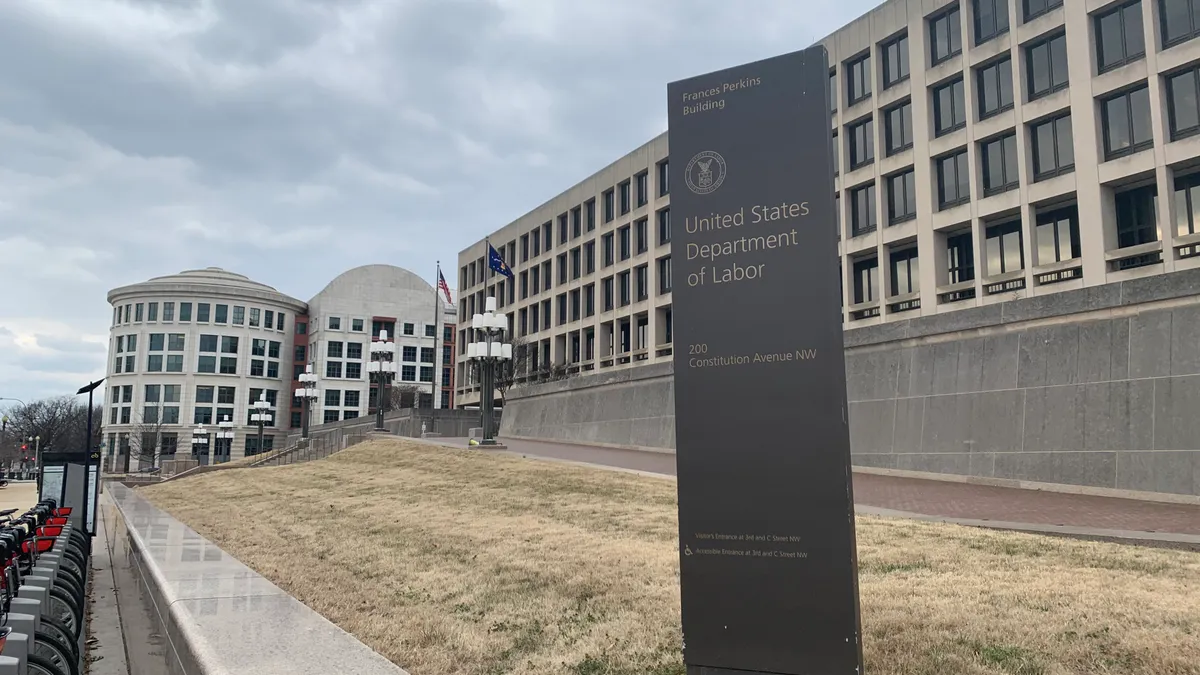Dive Brief:
- The Biden administration will discard its 2021 rule updating Fair Labor Standards Act tip credit regulations about 3 1/2 months after a federal court vacated the regulation, according to a document released by the U.S. Department of Labor Monday.
- DOL said its latest action, which is scheduled to be published in the Federal Register Dec. 17, will remove the updated tip credit rule and reinstate the regulatory text as it existed prior to the rule’s 2021 effective date.
- The rule aimed to address situations in which employees perform both tipped as well as non-tipped work, also known as a “dual job.” The 5th U.S. Circuit Court of Appeals vacated the rule in August, holding that it violated the Administrative Procedure Act and applied the FLSA’s tip credit in a manner inconsistent with the text of the law.
Dive Insight:
With about a month remaining before Inauguration Day, another Biden-era DOL regulation has met its end. The agency continues to fight legal battles in support of other blocked regulations, such as its overtime rule, which was struck down by a federal judge in a decision that DOL has since appealed to the 5th Circuit.
Business groups opposed both the overtime and tip credit final rules. The tip credit rule sought to update FLSA regulations that determine whether employers may take a tip credit toward their obligations to dual job workers.
Specifically, the rule stated that work which directly supports tip-producing work may only be considered part of an employee’s tipped occupation if that work is not performed for a “substantial amount of time.” Substantial is defined as either exceeding 20% of the worker’s hours during the workweek or performed for a continuous period exceeding 30 minutes.
DOL’s proposed framework is commonly known as the “80/20” guidance and has a long history dating back through several presidential administrations. The Biden-era DOL’s rule was itself an attempt to replace a 2020 tip rule implemented during President-elect Donald Trump’s first administration.
The 2020 rule said employers could take a tip credit for the time a tipped employee spent performing related, non-tipped duties, as long as those duties were performed contemporaneously with, or for a reasonable time immediately before or after, tipped duties. Employers also could take a tip credit for an employee’s work if the employee’s tasks were on DOL’s O*NET task list for that tipped job, according to the 2020 rule.













